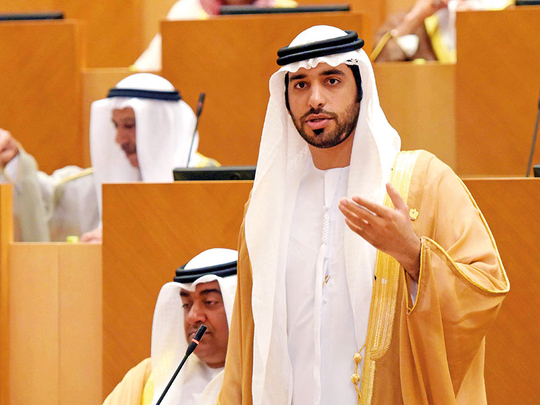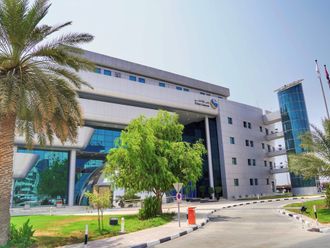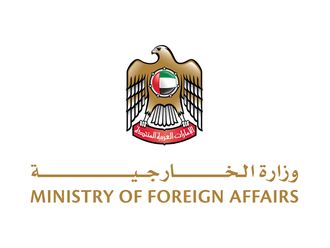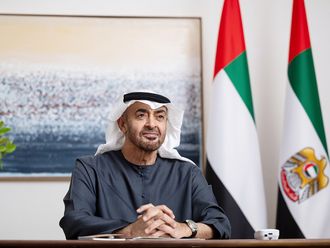
Abu Dhabi: Members of the Federal National Council criticised the poor performance of Emiratisation in many government departments and limited fund allocation for it.
A report brought out by the Human Resources Committee of the House revealed that Emiratisation in 19 government authorities does not exceed 38.3 per cent and 63.8 per cent of the budget for training and development was not used by the end of last year.
The report showed that 29 per cent of Emirati officials in these authorities were forced to tender their resignation because of restructuring, inefficiency or non-renewal of their job contracts.
Hamad Al Rahoumi, a member from Dubai and chairman of the committee, said, “Our ambition is to achieve 100 per cent Emiratisation in the government departments, but the performance is poor and does not meet our expectations.”
Saeed Al Rumaithi, a member from Abu Dhabi, said the workforce report showed that 8,000 administrative jobs in the federal departments can be taken by Emiratis. “We wish the number of such jobs is 30,000 or more,” he said.
Dr Nidaal Al Tunaiji, a member from Ras Al Khaimah, wondered why the UAE has not yet achieved 100 per cent Emiratisation after 46 years of its formation.
Salem Al Shehi, also a member from Ras Al Khaimah, said the challenge of unemployment among highly qualified citizens, who hold master’s and bachelor degrees, must be addressed urgently.
“Only 8,000 jobs which can be Emiratised? What about the remaining thousands of unemployed citizens?” Al Shehi asked.
Dr Ahmad Abdullah Humaid Bel Houl Al Falasi, Minister of State for Higher Education and Advanced Skills, said, “We will never be satisfied with Emiratisation of less than 100 per cent. However, we should take into account that ministries have achieved 68 per cent Emiratisation, including 6,400 medical jobs and 6,500 educational jobs, and that there are 22,000 marginal jobs which may not be taken by citizens.”
Al Falasi, who is also the chairman of the Human Resources Authority, said 7,685 jobs would be available for citizens the next year.
The fast-track Emiratisation of executive jobs until September last year in the ministries was 80 per cent, while in the entire government was 60 per cent and in the autonomous departments was 51 per cent.
In the medium-term track, Emiratisation in specialised and technical jobs in the ministries, including media, religious, agricultural, judicial, diplomatic, youth and sports, labour and social affairs, financial, economic, engineering and military sectors was 88 per cent, and in the entire government, it was 68 per cent and in the autonomous departments, it was 27 per cent.
In the long-term track, Emiratisation of medical and educational jobs at the end of September last year was 48 per cent in the ministries, 45 per cent in the entire government and 13 per cent in the autonomous departments.
Among the top Emiratisation achievers were Shaikh Zayed Housing Programme with 100 per cent Emiratisation at the end of last year, Emirates Identity Authority (97 per cent), Youth and Sports Authority (93 per cent) and Al Etihad Credit Bureau (90 per cent).
Among the least achievers were Emirates General Petroleum Corporation (Emarat) with 14 per cent Emiratisation at the end of last year, Zayed University and the Higher Colleges of Technology (HCTs) with 19 per cent each.
As many as 9,199 Emirati jobseekers are currently registered in the Ministry of Human Resources and Emiratisation’s database. They include 7,546 women and 1,649 men across the UAE. “We have created an online Emiratisation portal as an initial phase on December 7, 2016 that included 250 companies.”
Sharjah currently ranks first with 2,161 registered job-seeking candidates, followed by Dubai with 1,829 candidates, Ras Al Khaimah 1,472, Abu Dhabi 1,410 candidates, Fujairah 1,131, Ajman 852, and Umm Al Quwain 344 candidates.
Some 44 per cent of the registered candidates hold university degrees, 38 per cent are high school graduates, whereas 18 per cent have no high school certificates.
The banking sector is the most attractive for Emirati jobseekers with 20 to 45 per cent Emiratisation since December last year.












